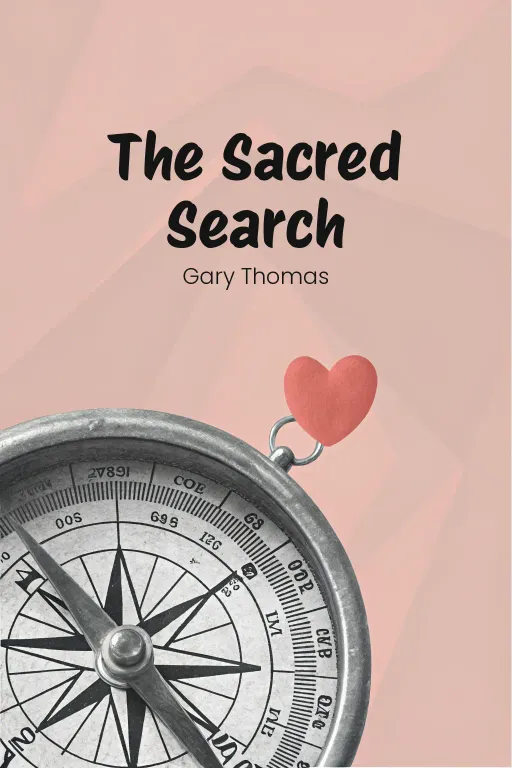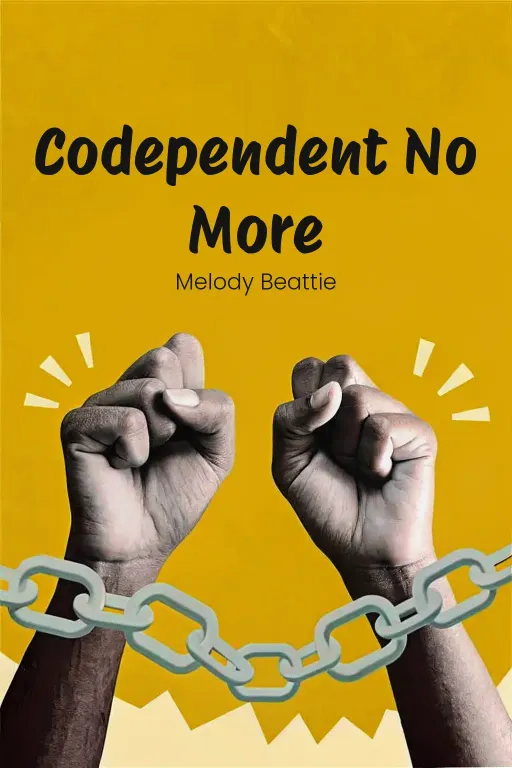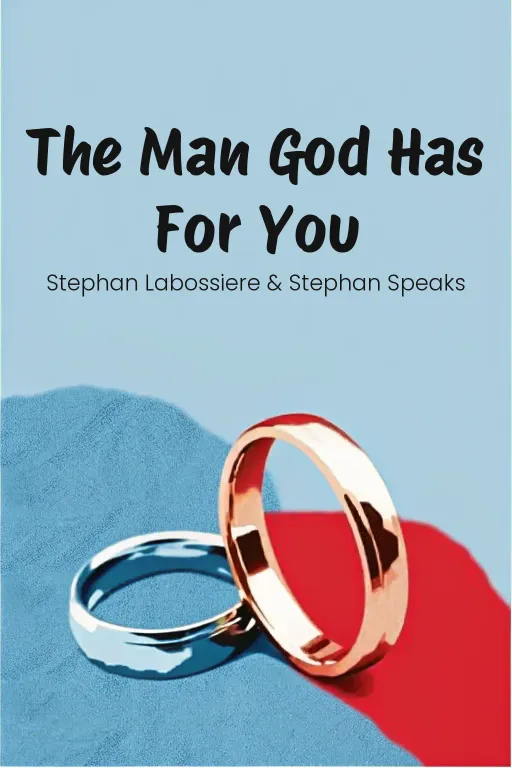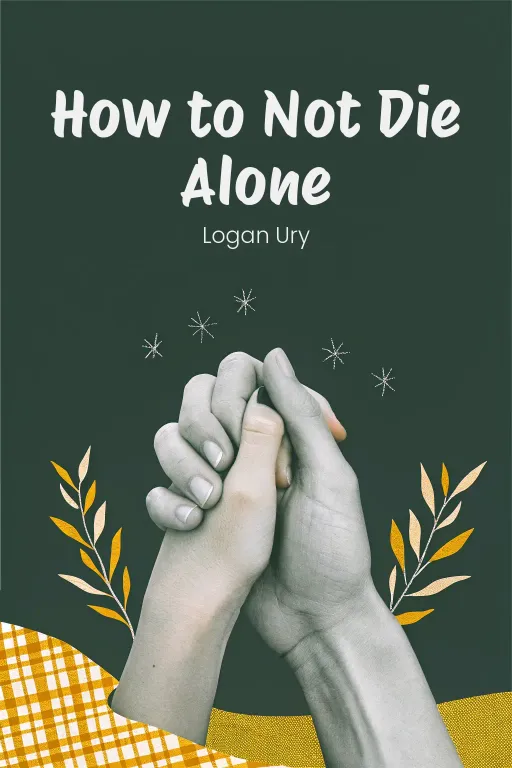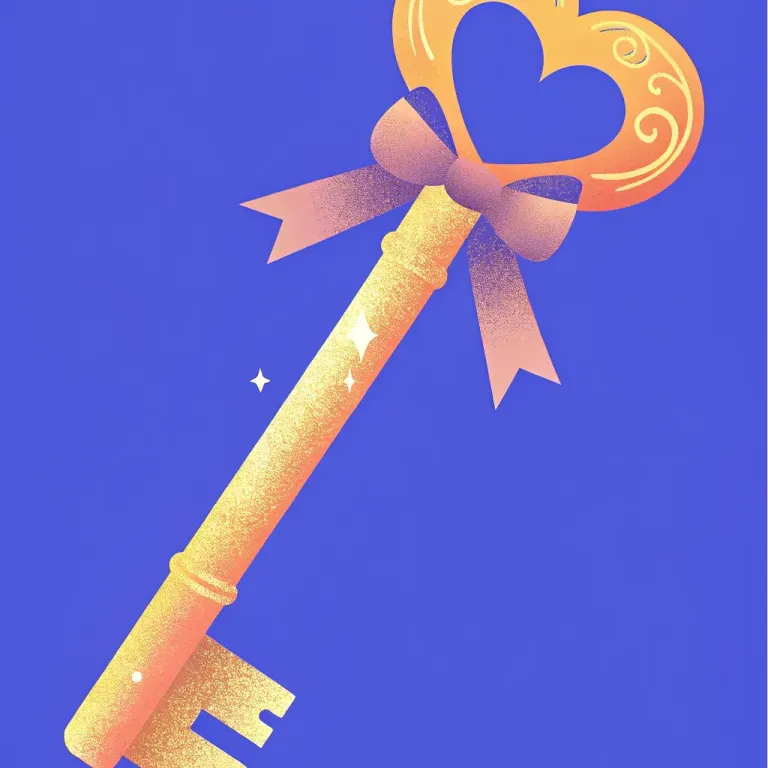
Love's Makeover: Heal, Prep, and Find "The One"
Podcast by The Mindful Minute with Autumn and Rachel
7 Traits to Help You Determine Your Life Partner
Introduction
Part 1
Autumn: Hey everyone, welcome back! Today, we’re diving into something a lot of us think about – love, relationships, and that whole quest for “The One.” But Rachel, I gotta ask, do you honestly think most people are actually “ready” for the kind of love they say they're looking for? Rachel: Oh, absolutely “everyone” thinks they're ready. All those heartbreak songs on their playlists apparently make them relationship gurus. But readiness? That's a whole different game. Autumn: Exactly! And that's where Stephan Labossiere's book, The Man God Has For You, comes in. It’s not just another one of those "how-to-snag-a-guy" guides, you know? It really dives into “how” personal growth, self-healing, and faith all come together to create something amazing in relationships. Rachel: So, it's kind of like assembling IKEA furniture, right? Your heart's the shelving unit, God's the instruction manual, and patience is... the Allen wrench you can never find? Autumn: <Laughs> Love that, Rachel! So, today we're going to be covering three main ideas from the book. First, about healing and really getting to know yourself. Like, rebuilding yourself from the ground up. Rachel: Got it, like inner home improvement, HGTV style. What's next on the agenda? Autumn: Second, faith and spiritual guidance – like, using your faith as a compass when navigating love. Rachel: So, less swiping left and more “praying” left, huh? Autumn: Exactly! And third, we’ll break down practical steps for finding a partner who's on the same page spiritually, and how to set solid, healthy boundaries in the relationship. Rachel: Sounds like today's episode is half soul-searching, half relationships 101. Well, let's see if Stephan's advice can stand up to my scrutiny. Autumn: Oh, bring it on, Rachel! Let’s get into The Man God Has For You and really dig into what it takes to actually find, and be ready for, real love.
Healing and Self-Discovery
Part 2
Autumn: Okay, Rachel, so rebuilding from the inside out… we’re looking at healing and self-discovery as the very first step. And yes, you’re right, this is way, way more than just burning some sage. It's the deep work. Rachel: Exactly! So, definitely emotional heavy lifting here. Labossiere's talking about digging into those hidden, unresolved emotional wounds we all tend to cart around into relationships, right? Like trying to slap paint on a cracked wall… you have to actually fix the wall first. Autumn: Precisely! Rachel: Okay, so we're talking major emotional drywall repair. But seriously, Autumn, what does "healing" actually look like in real life? Everyone throws the word around, like it's some Pinterest project, "Step one, cry; step two, buy scented candles." Where's the actual work involved? Autumn: That's the million-dollar question, isn't it? Healing really starts with being intentional. Labossiere highlights a few essential tools: things like self-reflection, therapy, and having a strong, supportive community around you. Self-reflection might mean journaling, practicing mindfulness, and really trying to figure out the patterns in your life. Why do certain relationships always trigger you? Why do old experiences keep dictating how you react to things? Rachel: Right, so, like, journaling: "Dear Diary, why do I ALWAYS chase after people who leave me on 'read'?" Autumn: Yes, exactly that! And that's where therapy can really take it to the next level. Cognitive Behavioral Therapy, for instance, can help you spot and then reshape those negative beliefs, replacing them with healthier ones. It's about identifying the root causes of your pain and rewiring how you respond to it. Rachel: Sounds productive, sure. But a little... messy, right? Are people even ready to face the truth, especially if they realize they're the problem, not just their terrible exes? Autumn: It's a tough pill to swallow, no doubt. However, it's also completely necessary. Think about Sophia from the book – her story's a perfect example. She'd never truly dealt with being betrayed in a past relationship, which meant she carried all that baggage – those trust issues – into every new relationship she had. Can you imagine constantly second-guessing your partner, misinterpreting everything they do? It's not only exhausting but incredibly damaging. Rachel: Let me guess - that backfired spectacularly? Autumn: Oh, big time. She kept sabotaging her relationships with her paranoia until she finally decided to seek therapy. During counseling, Sophia realized the pain of that betrayal actually stemmed from an even older wound – feeling abandoned by her parents as a child. And by working through that unresolved grief, she was finally able to let go of her suspicion and approach new relationships with a clean slate. Rachel: Wow. So it wasn't just about "healing from the ex." It was about excavating these deeper layers she didn't even know were influencing her decisions. Autumn: Right! And that's the key takeaway here: healing isn't just about dealing with the last breakup; it’s about recognizing those patterns and triggers that go all the way back to old pain. Get to the root of those issues, and you'll stop dragging that old baggage into new relationships. Rachel: Makes total sense. But on the flip side, once someone starts this healing process, doesn't that make them vulnerable? Doesn't that put them in a position to get hurt all over again? I mean, vulnerability sounds great in theory, but who wants to be an open wound? Autumn: Ah, the vulnerability dilemma! Labossiere would argue that healing and vulnerability are two sides of the same coin. Healing removes the walls that keep us locked up, while vulnerability is precisely what allows love to flow in. It's about taking the risk of being seen for who we are – flaws and all. Rachel: So vulnerability is not just a free pass to get hurt, but it's also an invitation to connect? Autumn: That’s it. And Labossiere gives us steps we can actually take. Practicing self-compassion, for example - that helps us look at our flaws without judging ourselves too harshly. And then, there’s purposeful sharing – gradually opening up to people we trust, building trust over time. Rachel: Okay, but what if someone's been burned so many times they've basically built a fortress around their heart? How do you even begin to chip away at those walls? Autumn: That's Alexandra's story from the book. She was a super successful executive, but emotionally closed off. She saw vulnerability as weakness. Partners told her she was distant because she was always scared to truly let them in. Rachel: So, corporate armor to the rescue – or not. Autumn: No. Eventually, it started costing her meaningful relationships. After attending a personal development retreat, she realized her emotional walls stemmed from a fear of rejection that she'd had since childhood. So, slowly, she began sharing her fears with close friends; to her surprise, she found understanding, not judgment. Rachel: Let me guess: once she dropped her guard, the right person finally had space to step in? Autumn: Exactly! Vulnerability makes real intimacy possible – not just the surface-level kind, but true, emotional depth. Rachel: Okay, Autumn, I'm tracking with you. Heal the wounds, embrace vulnerability. But here's my next thing: what happens once you're healed? Is this just self-improvement for the sake of self-improvement? Or is there a bigger purpose driving all of this? Autumn: That's where self-discovery comes into play – it’s about figuring out your purpose, your values, and what truly lights you up inside. Labossiere “really” stresses that knowing yourself is crucial for recognizing what kind of partner aligns with the person you're becoming. Rachel: Hmm, purpose. Like having the "Why" of your life written across your Spirit Board in neon letters? How do people actually find this purpose? Autumn: By getting genuinely curious about themselves. Labossiere suggests exercises, things like clarifying your values, exploring your passions, and even using visioning tools to map out your ideal future. For example, asking yourself, "What do I want my life to look like in five years?" can help align your relationship goals with your overall life direction. Rachel: So instead of just stumbling into relationships hoping they'll somehow fix you, you're showing up as a whole person in the first place. Autumn: Absolutely! Take Daniel's story. He felt totally aimless for years. He was always jumping from relationship to relationship, hoping they'd give his life meaning. It wasn't until he started volunteering and mentoring youth using his musical talents that he finally discovered his true purpose. That clarity helped him realize he needed a partner who supported his creative ambitions and shared his passion for service. Rachel: So once he knew his purpose, he could easily filter out the connections that didn't align with the big picture. Autumn: Exactly, Rachel. It's about loving intentionally, not just passively waiting for things to magically "work out." Rachel: Alright, Autumn, healing, vulnerability, purpose – I get it. But tell me about timing. What happens when you've done all the work, and love still hasn't rung your doorbell? Autumn: Patience. Labossiere calls it trusting divine timing, which means love will find you when you're truly ready – not just when you think you're ready. It's about aligning your internal growth with God's plan for you. Rachel: Sounds frustratingly fair. So, where does the Bible story of Ruth come into play here? Autumn: Great parallel! Ruth patiently trusts the process, right? She aligns herself with her values, and trusts that it will happen. Her story is a beautiful reminder that preparation, patience, and faith all work together when you are on the path to finding love. Rachel: So, no swiping out of pure impatience, got it. Healing, vulnerability, purpose, perfect timing… Sounds like a whole syllabus for love, doesn't it?
Faith and Divine Guidance
Part 3
Autumn: Building on the importance of inner readiness, let's talk about how faith and divine guidance play a crucial role in attracting the right partner. This naturally follows healing and self-discovery because it really expands on how spiritual alignment complements personal growth. Rachel: Okay, Autumn, so we've got the healing, got the purpose... and now we’re adding divine guidance to the mix? This sounds complex. So, this “spiritual alignment” thing—walk me through it. Is it like connecting my life to some higher power's Wi-Fi? Autumn: <Laughs> In a way, yes! Think of faith and divine guidance as a spiritual compass, helping you navigate relationships with clarity. Labossiere points out that faith isn't just passively trusting God's plan, it's about actively engaging with it. It's not just saying, "Okay, God, fix it," but about prayer, listening, and aligning your actions with what you believe is the right path. Rachel: Right, but where do you draw the line between trusting God and just, well, passing the responsibility? Like, "Oh, God's got this. Let me just chill with my latte." Autumn: Exactly! Labossiere makes that distinction. He talks about prayer as a dialogue, not a one-sided request. People often pray things like, "God, remove this person if they're not right for me." But that's passive. It's kind of like Patricia's story in the book. Rachel: Patricia, right! She was relying too much on divine intervention? What happened with her? Autumn: Right. Patricia kept getting into relationships that just fizzled out. She'd pray for God to remove anyone who wasn't right, which gave her some comfort, sure. But she never asked why these relationships didn't work out, or what she was supposed to learn from them. Rachel: So, instead of taking initiative, she just used the spiritual emergency line, hoping God would "ghost" all the unsuitable partners for her? Autumn: Exactly! Labossiere sees this as a common trap. Prayer should include active introspection: "Okay, what am I supposed to learn from this situation? What do you want me to do here?” That way, you can act with discernment instead of waiting for divine intervention to fix everything. Rachel: Ah, okay—instead of handing God the wheel, you're inviting Him into the decision-making process, but you're still driving. Autumn: Exactly. And listening is key. People often ask and ask, but rarely pause to actually reflect or create space for answers. Rachel: Right. So, you’re saying it’s more than just zoning out to worship music and hoping for a sign, right? Autumn: Definitely. Labossiere even gives some real strategies: fasting, solitude, and journaling after prayer. Take fasting, for instance. By removing physical distractions like social media or even meals, you can sharpen your focus and create that atmosphere for clarity. Rachel: So, fasting is like hitting the reset button on your brain. No phone scrolling, no snacks—just clarity and maybe a few hunger pangs. Autumn: <Laughs> Exactly! And then there's solitude: intentionally setting aside quiet moments to reflect without distractions. It's like having a one-on-one with yourself… and God. And journaling helps process any spiritual nudges, thoughts, or realizations you might have during those moments. Rachel: Right, I get the picture. So, instead of yelling, "God, answer me!" in a crowded train station, you're going to a quiet room, asking, and really listening. Autumn: Precisely. But here's the thing: God's answers might not always be what you want to hear. That's where humility and trust come in. Rachel: Humility, huh? You mean admitting that someone you're “really” into isn't the one? Ouch, that's rough. Autumn: It can be tough, but it's transformative. And that brings us to the balance of faith and action. Labossiere says that while trusting divine timing is important, it doesn't mean just sitting around. Faith without works, right? Rachel: Oh yeah, the praying for a job but never sending out resumes situation. Autumn: Exactly! The story of Ruth and Boaz in the Bible is a great example. Ruth trusted God, but she didn't just wait around. She went to work, gleaned in the fields, and put herself in a position to be noticed. It shows how faith and purposeful effort go hand-in-hand. Rachel: So Ruth wasn’t swiping on a dating app, but instead, took action while letting things happen naturally? Autumn: Exactly! Labossiere also breaks it down into practical steps. First, define personal readiness—ask yourself if you're emotionally, mentally, and spiritually prepared for a relationship. Then, take the initiative: put yourself in places where like-minded people might be, whether that's volunteering, going to events, or pursuing your hobbies. Rachel: Okay, playing devil's advocate here. What if someone says, "I've done the work, I've been patient, and my Boaz is still nowhere to be found"? Autumn: That’s where patience and trust come in. Divine timing might not always align with our timelines, you know? It's about believing that sometimes delays are divine redirections, or simply lessons in disguise. Rachel: Alright, tough but fair. What about discernment, then? How do you actually recognize if someone aligns with your life goals on a deeper level? Autumn: Great question. Discernment is about balancing emotions with wisdom. For example, if someone disrespects you or your values, no amount of charm can make that a good match. Gotta stay sharp, trust your intuition, and seek confirmation through prayer. Rachel: So, red flags should stay red flags, no matter how good the chemistry might be? Autumn: Exactly. Emotions can cloud your judgment, which is why faith-based discernment helps cut through that haze. Rachel: Got it—faith as your compass, prayer as your guidebook, and discernment as your lens to filter out the wrong connections. It seems like a solid framework.
Traits of a Godly Partner and Healthy Boundaries
Part 4
Autumn: Okay, so once we've got a solid foundation personally and spiritually, the next step is really figuring out what to look for in a partner and how to actually build a healthy relationship together. This part builds on everything we’ve been talking about—healing, faith, and personal growth. It’s about taking what we know to be true internally and applying it to how we choose partners, set boundaries, and create mutual respect. Rachel: So, this is basically where the rubber meets the road, right? Let's get down to specifics, Autumn. If we're talking a “godly partner,” what's the ultimate checklist look like? Autumn: Well, first off, Labossiere stresses compatibility and attraction as absolutely fundamental. And attraction isn’t just about physical appearance, but emotional, intellectual, and spiritual connections, too. It’s that whole package that keeps a relationship strong over the long haul. Rachel: Right, so it’s not just about finding someone who looks good on paper—or, you know, prays five times a day with perfect humble mannerisms. It’s got more layers than that. Where do you think people tend to get this wrong? I’m guessing there are plenty of traps to fall into here. Autumn: Definitely. Labossiere points out that one of the biggest mistakes is minimizing the importance of attraction in the name of “virtue.” It’s that idea that if the person is kind or spiritually sound, you can overlook whether there's actually a real spark. Rachel: Let me guess. They settle for the “nice guy” who's about as exciting as plain oatmeal, and then they wonder why the relationship feels…flat. Autumn: Exactly! Labossiere even tells a story about a woman in the book who got into a relationship with a really supportive guy, but she just wasn't emotionally or physically drawn to him. Over time, she just disengaged, feeling like the relationship was more of a duty than anything. Eventually, all that suppressed resentment just killed any connection they had. Rachel: Ouch. Okay, but this feels tricky, right? Because if we overemphasize attraction, aren’t we just back to making shallow choices? Where's the happy medium? Autumn: That’s a great question. Labossiere says that real attraction has to run deeper than just what you see on the surface. It's about being intellectually stimulated, spiritually uplifted, and feeling that emotional connection. Someone who can spark your mind through meaningful conversations or elevate you spiritually through shared faith, that creates a different kind of chemistry - one that actually grows over time. Rachel: Okay, so genuine attraction lives where your life's purpose meets personal connection. Got it. What else is on this list? Autumn: Respect and a love that actually builds you up. Labossiere emphasizes that a godly partner should never make you feel less worthy, but will always encourage you. And, even more importantly, create a safe space where you feel seen, listened to, and supported. Rachel: That’s a lot to unpack, Autumn. Because “respect” is one of those words that everyone uses, but few really define. How do you know if it’s actually there, or if you're just telling yourself it is? Autumn: That’s where boundaries and emotional safety come in. Labossiere even tells a story about a woman who justified her partner’s jealousy and possessiveness as a sign of “passion.” Over time, though, she felt so limited and emotionally drained. She couldn't even express herself for fear of being judged or dismissed. Rachel: Let me guess, she stayed because she thought that's all she deserved? Autumn: Spot on. She rationalized his behavior because she had her own insecurities about her value and worth. But once she focused on her mental health and self-respect, that all changed. Therapy helped her realize that love that’s rooted in control…well, it's not love at all. It’s just insecurity. Rachel: That's a huge takeaway right there. Respect and freedom are non-negotiable. But you know people love a fixer-upper, right? What does Labossiere have to say about the idea of dating potential? Autumn: Oh, he does not hold back on this one. Supporting your partner is one thing, but going into a relationship with the idea of "building a man" is just asking for trouble. Love isn’t about sacrificing your own well-being to “fix” someone who isn’t even ready to change. Rachel: Sounds like we are getting into murky waters with sponsor relationships. What happens when someone is so focused on carrying their partner’s luggage that they forget what their own dreams even are? Autumn: Exactly! Labossiere talks about a woman who was basically financially supporting her boyfriend. She was working overtime to fund his dreams, thinking her loyalty would somehow make him step up. Spoiler alert – it didn't. He got comfortable relying on her and she ended up resentful and burned out. Rachel: Right. So love shouldn't look like a financial aid program, got it! Autumn, we've got to be real, though, there's a pretty fine line here. What's the real difference between genuinely supporting someone versus enabling them? Autumn: It comes down to effort and shared responsibility. Labossiere says that a godly partner is someone who is actively working on their own growth, whether that’s emotional, professional or spiritual. You aren't dragging them, you are just walking alongside each other. If they’re taking initiative, it’s support. If you’re carrying the entire load, it’s enabling. Rachel: That actually makes a lot of sense. You can give someone directions, but you shouldn’t be driving the car for them. Do you have any advice for how people can tell the difference in real-time? Autumn: Yes, he suggests evaluating effort - is your partner working towards their goals, or are they waiting for you to push them? Do they help out in the relationship by sharing responsibilities, or are you doing everything single-handedly? Rachel: That is practical. I like it. Moving on, boundaries – they seem to be the word of the decade. What role do they play in all of this? Autumn: They are essential for balance and self-respect in any relationship. Labossiere shares the story of a woman who realized that she was always the one compromising in her relationship. But when she started setting boundaries by prioritizing her needs and not tolerating disrespect, the dynamic shifted. Rachel: Did the guy step up or run for the hills? Autumn: At first, he resisted. But then, her boundaries forced him to actually look at his behavior, and they were able to have more constructive conversations. Let’s be clear, though: If someone doesn't respect your boundaries, that’s a major red flag. Rachel: So boundaries are like the ultimate respect test? Autumn: Exactly. Healthy partners see boundaries as necessary, not restrictive. Labossiere gives strategies for how to actually set them, like communicating your needs clearly. If someone is constantly crossing the line, that tells you everything you need to know about their priorities. Rachel: So boundaries not only protect you but also show you who is truly for you. Okay, so compatibility, respect, mutual effort, and boundaries are the dream team for godly relationships? Autumn: Yes! It's about creating relationships that lift you up, inspire you, and challenge you to be the best version of yourself. When done right, those dynamics can form a great foundation of love that’s aligned with a divine purpose and constant personal growth. Rachel: That sounds like a manual worth following. Next time let's talk more about keeping those sparks alive, but with some solid boundaries intact.
Conclusion
Part 5
Autumn: Okay, Rachel, let’s bring this home. So today, we talked about how healing and self-discovery really sets the stage for healthy relationships. We really stressed the need to confront those unresolved issues, and clearly define what you want in life. Then, we explored how faith and divine guidance can be powerful tools, but it’s also important to balance faith with practical action to align with God’s timing, right? And finally, we explored what to look for in a godly partner, emphasizing the importance of mutual respect, attraction, personal growth, and solid boundaries. Rachel: You know, what really struck me is how much of this boils down to preparation. It’s about fixing those cracks within ourselves, aligning with our purpose, and setting boundaries before we even think about partnering with someone else. It's like… building a solid foundation so you don't end up building castles on quicksand, you know? Autumn: Exactly! And if there’s one thing I want people to remember, it’s this: love isn’t just something that randomly happens to us, it’s something we actively prepare for. You know? Ready your heart, align yourself with your faith, and approach relationships with clear intentions. The right relationship isn't just luck; it's what happens when you are in alignment with the work you've done. Rachel: Alright, folks, so the takeaway for today? Stop settling, start healing, and please, for your own sake, don't date someone hoping to change them. Keep those boundaries strong and trust the process. Autumn: Amen to that, Rachel! Thanks for tuning in, everyone. And remember, true love “really” starts with becoming the best version of yourself. Until next time!
